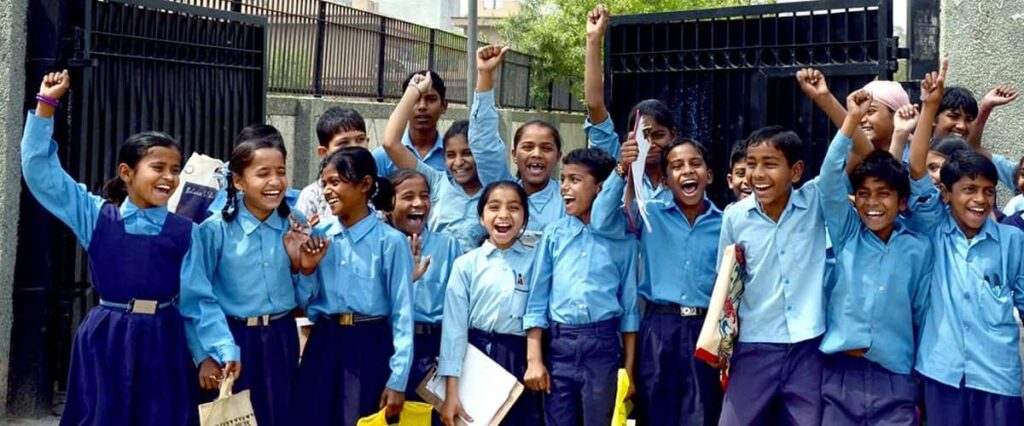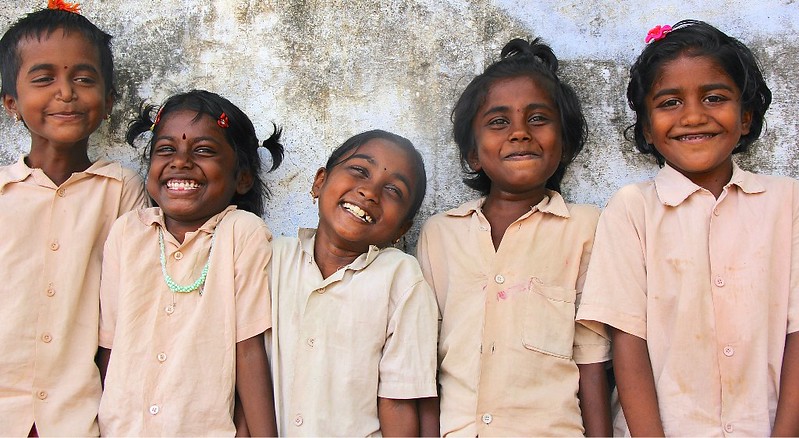
Educational Equity: Ensuring Equal Opportunities for All Children
Imagine a classroom where every student feels supported and has what they need to learn and grow. This is the idea behind educational equity. It mean....
Read More
There are an estimated 46 million children between 6-18 years of age who are not in school (Source: RGI Census Population Projection 2016 and Unified DISE 2016-17). Many children have never had the chance to attend school and several others dropped out for varied reasons - either to work as child labourers or because they’re being forced to get married. This is the brutal truth that continues to affect the development of children.
When not attending school, children are particularly more vulnerable to economic exploitation, sexual abuse, human trafficking, and early marriage. The Coronavirus pandemic worsened the situation regarding children's education in India as it led to the closure of 1.5 million schools due to the resultant lockdowns. UNICEF further highlights that this impacted 247 million children enrolled in elementary and secondary schools in India. The pandemic has kept children out of school for over 17 months, thus creating hurdles in their aspirations to complete their school education.
Child labour has considerably increased in the recent few years. This is why we have been working hard to protect the future of children and ensure they have access to education. The CRY teams have been addressing the learning gap through bridge schools as the long academic vacuum has resulted in children losing touch with their school subjects and the habit of structured learning. To support their learning, we have been conducting online classes through digital tablets with the help of qualified teachers. We have also been providing psychosocial support to children as they have been at a higher risk of facing issues of stress, abuse, and neglect due to the loss of livelihoods and restricted movements during the lockdowns.
The importance of education for children cannot be overstated. It is the cornerstone of empowerment, equipping young minds with knowledge, skills, and confidence. Education breaks barriers, instils critical thinking, and empowers children to shape a brighter future. Invest in education for limitless possibilities and a thriving society.
Education is the bedrock of critical thinking. It equips children with the ability to analyse, evaluate, and solve problems independently. By fostering critical thinking skills, education empowers children to make informed decisions and navigate the complexities of the world around them.
The early years of education play a crucial role in cognitive development. Exposure to a structured learning environment stimulates a child's cognitive abilities, enhancing memory, problem-solving skills, and language proficiency. This strong foundation is key to future academic success and overall personal development.
Education is a powerful tool in dismantling gender inequality. When both girls and boys have equal access to education, it challenges traditional gender norms and contributes to building a more inclusive society. CRY India is committed to ensuring that every child, regardless of gender, has the opportunity to access quality education.
One of the most effective ways to combat child labour is through education. When children are enrolled in schools, they are less likely to engage in exploitative labour. Education becomes a shield, protecting them from the cycle of poverty that often perpetuates child labour.
Education acts as a powerful deterrent against child marriages. When children, especially girls, are educated, they gain the tools to defy societal norms that perpetuate early marriages. CRY India works tirelessly to end the child marriages by promoting and facilitating education for every child.
Education extends beyond textbooks; it encompasses essential life skills. Quality education includes imparting knowledge about health and hygiene and empowering children to lead healthier lives. CRY India integrates health education into its programs, ensuring that children are equipped with the information needed for their well-being.
As a stakeholder in the empowerment journey, CRY India is dedicated to ensuring that every child has access to quality education. Through strategic initiatives and community engagement, we actively contribute to breaking barriers and creating an environment conducive to learning.
Our programs focus on community mobilisation, advocating for policy changes, and collaborating with local stakeholders to establish and support educational infrastructure. We believe in a holistic approach that not only emphasises academic learning but also nurtures the overall well-being of children.
By connecting children to government benefits, creating learning resources, and fostering community involvement, CRY India seeks to create a ripple effect that positively impacts not only individual children but entire communities.
At CRY India, we firmly believe that education is the key to unlocking the full potential of every child. The reasons why education is crucial for empowerment are diverse, ranging from cognitive development to social change. As stakeholders, we are committed to creating a world where every child has the opportunity to learn, grow, and realise their dreams.
Collective and continuous efforts are the need of the hour to ensure children get back to a structured setting so that they can continue their education and explore their true potential. We currently have 180 bridge learning centres in India, serving 24,793 children in 307 villages. However, there is still more to be done. Your generous contribution to CRY, India’s most trusted NGO, can protect children's rights and give them a brighter future. Your donation to NGO CRY will help pave their way to a better future!
Join us in this journey of empowerment through education, where each child's success is a testament to the collective impact of our efforts. Together, let's shape a future where no child is left behind.